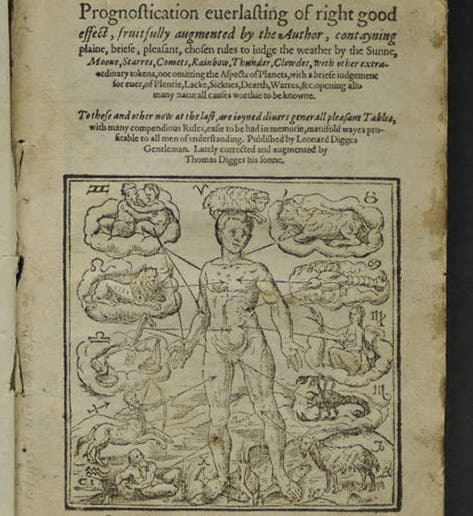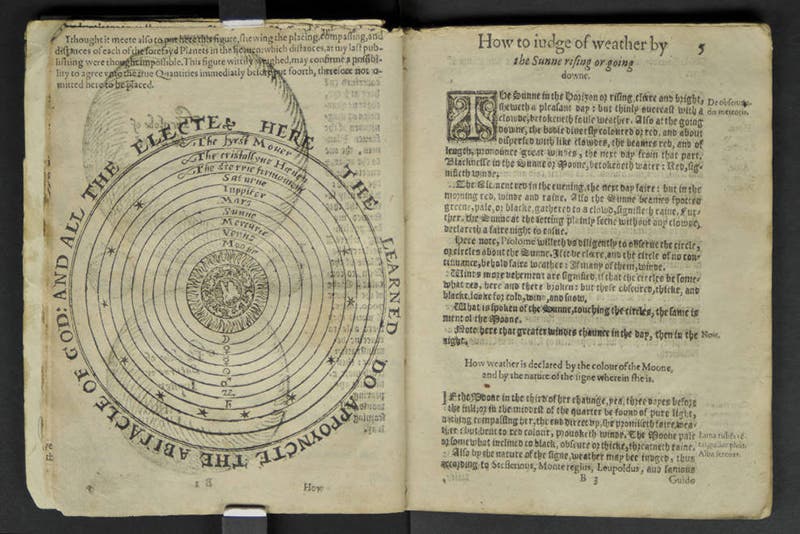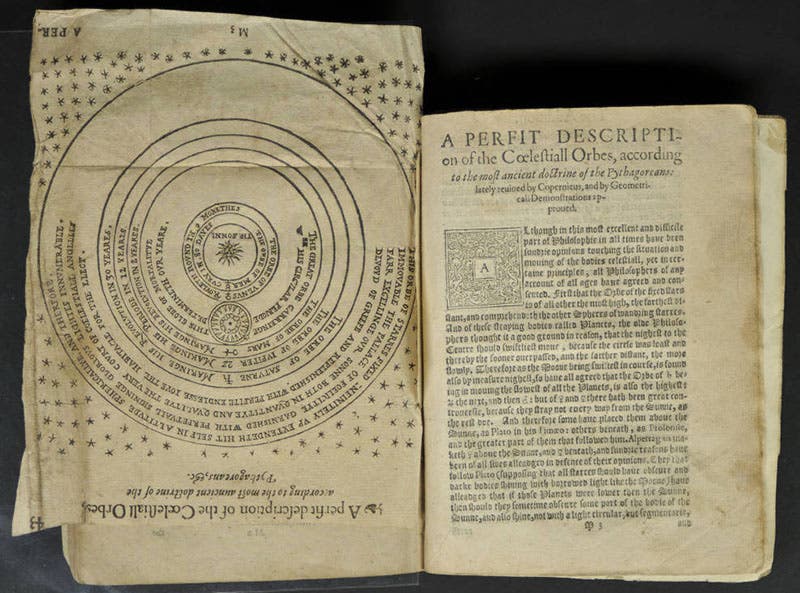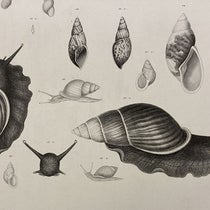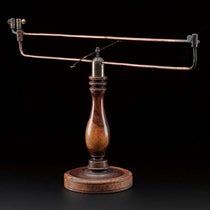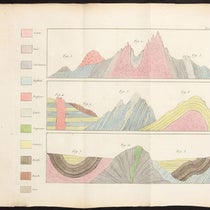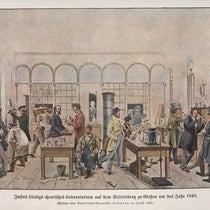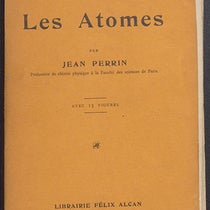Scientist of the Day - Thomas Digges
Thomas Digges, an English mathematician and astronomer, died Aug. 24, 1595, at the age of about 49. Digges was the first Copernican in England, which is to say, he was the first to accept and defend the proposal that the Sun is the center of the solar system and that the Earth is a planet that orbits the Sun. In 1576, Digges published a new edition of his father Leonard’s almanac (first image), in which Leonard had included a traditional diagram of a geocentric universe (second image).
At the end of the almanac, Thomas attached a short appendix, “A Perfit Description of the Coelestial Orbs,” advocating the heliocentric system that Nicolaus Copernicus had first proposed in 1543 (third image). Digges also included a large diagram of the Copernican system, the first to appear in English.
As you can see, in our copy of the second edition (1596), the diagram is mounted upside down, so in our fourth image, we invert the diagram so the text can be read more easily.
We displayed this diagram in our 2010 exhibition, Thinking Outside the Sphere: Views of the Stars from Aristotle to Herschel. The most striking feature of the Digges diagram is not the Sun at the center, but the wandering stars on the periphery. Since the stars do not move in the Copernican system, there is no reason for them to be packed onto a sphere, so Digges just let them drift away to the margins. This is the very first printed image to depict a universe that “infinitely up extendeth,” as Digges proposed in his caption. Digges really did “think outside the sphere.” Dr. William B. Ashworth, Jr., Consultant for the History of Science, Linda Hall Library and Associate Professor emeritus, Department of History, University of Missouri-Kansas City. Comments or corrections are welcome; please direct to ashworthw@umkc.edu.

